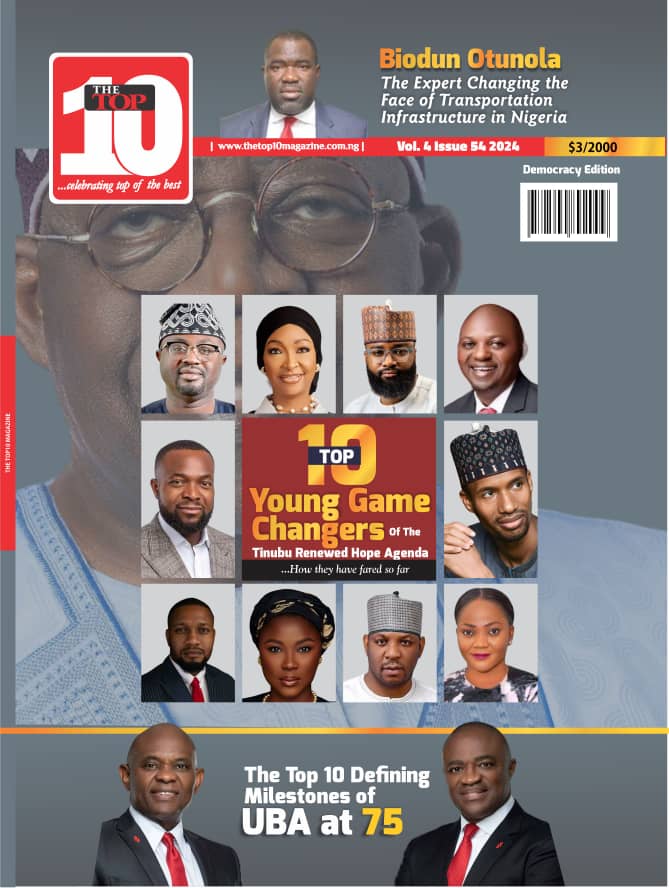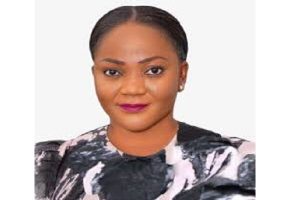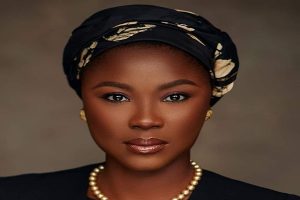The Ministry of Art, Culture and the Creative Economy is one of the few new ministries created last year by President Bola Ahmed Tinubu to anchor his Renewed Hope Agenda. The new ministry came with another novelty: the appointment of a woman, a young woman at that, as its first minister.
The appointment of Musawa, 49, a Nigerian lawyer, politician, and author from Katsina state, marks a pivotal moment for Nigeria’s art and creative industry. For the first time, the Nigerian government is not just acknowledging but avidly investing in the immense potential of the creative sector. And Musawa has taken the challenge head-on.


Before the creation of Musawa’s ministry, the Nigerian creative industry had already shown significant potential and growth, as evidenced by the rise of Nollywood film production, the global influence of Afrobeat music, and the increasing recognition of Nigerian contemporary art. Since 2015, the industry has been tipped as a burgeoning revenue generator for the country. In 2021, the value, as stated by the former Central Bank Governor, Godwin Emefiele, was around $4.5 billion, a figure that has nearly doubled today.
The surge in the value of the creative sector underscores the timely and crucial nature of Musawa’s role. There is a palpable sense of anticipation and hope as to how government involvement under her stewardship will further catalyse this sector.
In the few months that Musawa has spent in office, she has demonstrated that government, through her ministry, can do a lot to boost the fortunes of the creative industry. Already she has released an eight-point agenda that boldly aspires to position Nigeria as the world’s hub for creativity, culture, and entertainment. This strategic blueprint is not merely a set of goals; it’s a roadmap to revolutionise the industry. It promises to unlock job opportunities, forge foreign partnerships, cultivate local collaborations, and proudly parade Nigeria’s rich and unique national identity on both local and global stages. The agenda is a promise to elevate Nigeria’s economic standing through the power of creativity and culture.
Speaking last August at the Art & Tech district in Abuja, Musawa said the 8-point plan, tagged ‘Destination 2030’ would actualise her vision of transforming Nigeria into Africa’s creative, cultural and entertainment capital.
The plan includes the establishment of a Creative Economy Advisory Council with an aim to support the ministry with high-level strategic support. “A strong creative and cultural economy is a key driver of growth and presents an opportunity to accelerate Nigeria’s development on a local and a global stage,” she said.
The minister described the creative economy as an economy of ideas, an economy of innovation, and an economy of invention in the digital age. “Our ambition is to elevate the Nigerian industries, comprising art, culture and creative industries to rank among the top 20 globally in terms of GDP contribution, wealth creation, employment, and poverty reduction in line with the agenda 2050.
“Through innovative strategies, technological integration, and enhanced market access, our target is to increase the value of sectoral outputs by 50%, in line with the 2021 to 2025 national development plan.”
She added that part of the plan will also see to the preservation and sustainability of Nigeria’s cultural heritage. “Under the renewed hope agenda of the presidency, we will provide the tools needed to accelerate growth across all creative economy sectors. We will deliver job opportunities and foster foreign partnerships and local collaborations that proudly exhibit our rich and unique national identity on a local and global stage, and we will elevate our nation’s economic standing.

“We have multiple initiatives and projects planned such as creative hubs, a Nigeria cultural expo, a national entertainment centre, a national art gallery, innovative publishing partnerships and a gaming sandbox project. We are building a global standard film festival, a culinary academy led by a Michelin star chef and a fashion foundry.” Musawa said she would also see to the retrieval of stolen national artefacts from abroad.
“They are initiatives that we feel are very important for us to enact in a way that will enrich the lives of Nigerians. In a nutshell, what we want to do as a ministry is to add to the economy of the country. We want to be able to contribute at least $100 million by 2030. That’s a long term goal. In the short term, we want to add to the GDP and then we want to create jobs.
“We have capacity building that is key. Nigeria has a lot of raw talents but it is really about nurturing and cultivating them. We have come up with those initiatives that will be able to encourage Nigerians in capacity building and everything that we do looks at sustainability. It is not about putting up structures now, it’s really about how sustainable they are.”
One of the main areas where Musawa and her team find a great lacuna in the art and creative sector is the lack of strong legal framework. For example, copyright laws are not implemented so the ministry is looking at how it can strengthen those policies and tighten them.
Musawa believes that infrastructure is key because, for now, Nigerian creatives have to go out of the country for them to find the sort of infrastructure that will allow them to operate in the way that they need to. She cites the likes of Burna Boy and Whizkid who are fantastic Nigerian artistes but who have to go outside of the country to get arenas to perform. ” “Infrastructure is key and you are going to see that we have to begin projects,” she said.
The minister plans to provide an enabling environment for Nigerian creative artists. She intends to create artists hubs all over Nigeria, modelled after the Mad House UNILAG, an incubator/ hub founded by Bayo Omoboriowo. “We want to do a hub in different states in Nigeria that will give the people an environment where they can come and express themselves creatively. (Omoboriowa) has already done it. We have that template that we are going to replicate in every single state and eventually in every senatorial district. The musicians have already done the work so when we talk about the issue of destination 2030, we want to tap into those particular areas. It’s just about us sitting, talking, aligning and then giving them an enabling environment within Nigeria including the tax rebates and other waivers that will allow them to thrive.”
Musawa also plans to facilitate a safe and secure environment for Nigerian artists in Nigeria. “They want tints on their car window screens because they are famous and they don’t want to go around with insecurity and the government will give them licence for it. Some things are just as simple as that. Government is willing to work with them through our ministry to provide them that environment that will let them flourish. When we talk about destination 2030, you want to project Nigerian productions like films. Funke Akindele has already done it. If I start talking about Kiss Daniel and Burna Boy we are not going to leave here.”
Hannatu Musa Musawa was born on November 1, 1974. She is the daughter of Musa Musawa, a member of the radical leftist First Republic party, Northern Elements Progressive Union, and its successor in the Second Republic, Peoples Redemption Party.
Young Musawa obtained her undergraduate degree in Law from the University of Buckingham in the United Kingdom. She then pursued two postgraduate Master’s degrees: one in the Legal aspects of Marine Affairs from the University of Cardiff in Wales, and another in Oil & Gas from the University of Aberdeen.
Musawa has had a varied and successful career in different fields. She worked as a lawyer in private companies, providing legal counsel and representation in various matters. She has also specialized in marine affairs and oil & gas law, demonstrating her competence in these challenging areas.
She was appointed by President Bola Tinubu in 2023, after serving as his Special Adviser on Culture and Entertainment Economy. She had responsibility for the promotion and development of the creative sector in Nigeria, as well as the preservation and display of the country’s cultural heritage.
Musawa has been involved in Nigerian political affairs, both as a candidate and an activist. She contested for a legislative seat in the federal House of Representatives, aiming to serve her constituency and the public. She also served as a lawyer on the prosecution team in the 2003 presidential election petition involving Muhammadu Buhari and Olusegun Obasanjo.






